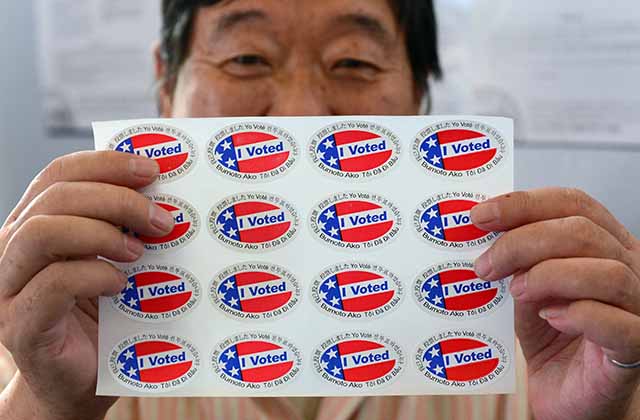

Voting is one of the most fundamental ways for individuals to make their voices heard and influence the future of their communities. As the Dallas-Fort Worth (DFW) metroplex diversity continues to grow, the Asian American community has been a rapidly growing demographic. However, as Asian Americans in DFW are making strides in business, education, and culture, voter turnout has not yet matched its population growth.
Voting is essential for every community, including the Asian American community, to ensure that our needs are being heard, considered, and addressed by our elected officials.
Why Voting Matters
- Representation: Voting allows individuals to elect leaders who reflect their values and priorities. For Asian Americans in DFW, it means having a voice in key issues such as immigration, education, and healthcare.
- Influence on Local Policy: Dallas-Fort Worth is home to many fast-growing cities and local governments. Voting in local elections allows you to influence decisions on school boards, city councils, transportation, housing, and social services.
- Addressing Underrepresentation: Voting is a right and a civic responsibility. Asian Americans, along with other minority groups, have been underrepresented in the political space. By showing up to vote, we’ll have a stronger voice for our community that can help drive more equitable representation in governing offices.
Asian American Voter Turnout
The DFW Metroplex is home to one of the fastest-growing Asian American populations in Texas. According to the U.S. Census Bureau, Asian Americans now make up over 7% of the population, with significant concentrations in Plano, Irving, and Richardson.
Despite this, voter turnout has been lower than that of other groups. Asian Americans saw a turnout of 59%, accounting for 5.5% of voters in Texas in the 2020 general election.
Barriers to Voting for Asian Americans in DFW
Several barriers continue to limit voter turnout among Asian Americans in DFW, such as:
- Language Barriers: The Asian American community in DFW is linguistically diverse, with languages such as Vietnamese, Chinese Korean, Hindi, and Tagalog spoken widely. For many first-generation immigrants, language barriers can make understanding the voting process challenging, which discourages participation.
- Lack of Political Outreach: Historically, Asian Americans have received less political outreach than other demographic groups. Candidates and political parties often overlook Asian voters, leading to a lack of engagement and feeling of political disconnection.
- Misinformation and Confusion: Misinformation over voter eligibility, the voting process, or voter rights can deter participation. It’s especially confusing for first-time voters, who may be unclear about deadlines, registration, and Election Day procedures.
Take Action This Election Cycle
Some helpful resources to help you navigate this election cycle:
For more information on how to vote, how to get more involved in the voting scene, or get resources in your preferred language, please visit APIAVote.
Asian and Pacific Islander American Vote (APIAVote) is the nation’s leading nonpartisan nonprofit dedicated to engaging, educating, and empowering Asian American and Pacific Islander (AAPI) communities to strengthen and sustain a culture of civic engagement.
Conclusion
Voting is a powerful mechanism for change, and active participation in elections is key to ensuring our voices are heard in shaping our country. While challenges remain, particularly with voter outreach and education, the recent increases in voter turnout are promising. Every vote counts, and by continuing to engage in the political process, we can ensure our perspectives and needs are addressed, leading to a more inclusive and representative democracy.